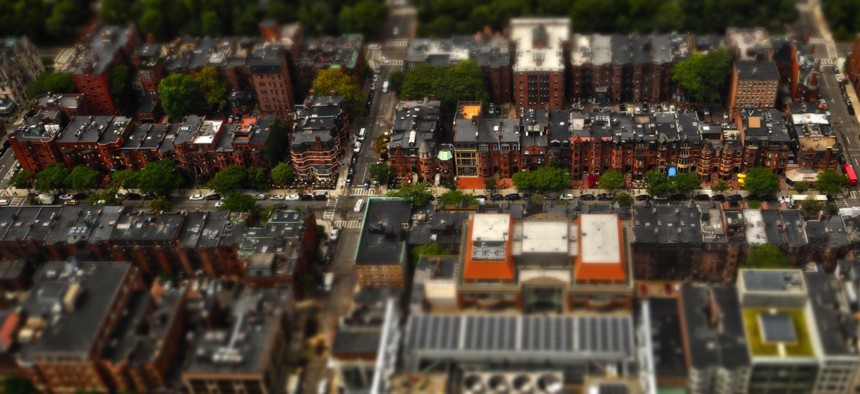Boston’s Unparalleled Effort to Incorporate Racial Equity Into Urban Planning

Boston, Massachusetts
“To be a strong city, we must learn to understand one another, break down the systemic racism of our history, and advocate for the rights of every Bostonian,” Mayor Marty Walsh said.
Leaders in Boston released what they say is the most racial equity-focused resilience strategy of any city to date, outlining steps to reduce systemic racism and increase opportunities for disadvantaged communities.
Resilient Boston is part of the first citywide plan in 50 years, Imagine Boston 2030, and a follow-up to 2016’s preliminary framework The Blueprint.
The strategy addresses short-term “shocks” like floods, infrastructure failure and terrorist attacks and long-term “stresses” like affordable housing and unemployment—all through the lens of racial equity.
“They see structural racism in the city as as much of a threat as sea-level rise,” Corinne LeTourneau, 100 Resilient Cities’ associate director of city and practice management, told Route Fifty by phone.
City officials are actively pursuing projects in historically underrepresented neighborhoods like improving the Fairmont Corridor’s transit line. Working with Boston’s chief resilience officer, Atyia Martin, the city found its most transit-burdened residents spend more money on longer commutes due to a lack of subway access in their neighborhoods.
The resilience strategy, unveiled Thursday, includes metrics and targets aimed at lowering the commute times for people of color by 50 percent with the goal of more affordable transit.
“We have developed a bold and innovative strategy to address systemic racism and plan ahead for the many challenges our City will face in the decades to come,” Martin said in the announcement. “We will work neighborhood by neighborhood to take action to build the resilience of every Bostonian.”
Martin previously worked with the city Public Health Commission, FBI and local police and was encouraged by community groups to apply for the CRO position because of its focus on equity. Her community-driven approach to the resilience strategy involved meeting with more than 11,000 Bostonians to solicit their input. She also created interdisciplinary design teams pulling from nonprofits to shape the initiative.
For all its success, Boston still has one of the biggest inequality gaps in the nation and will use an economic mobility lab to grow its middle class and ease poverty across government programs and projects. The lab will analyze about 600 childcare institutions to plan “interventions” improving low-income household self-sufficiency.
Boston might choose to look at the 9 percent of its population living in public housing and home in on blocks of 100 families to look at outcomes across systems and better coordinate efforts among them. Perhaps a higher-wage job would enable a family to care for their child properly. Short-term spending on health care, education or job placement could lead to long-term cost savings for the city.
“Boston’s commitment to framing a resilience strategy through efforts to address systemic racism stands out as a revolutionary step in urban planning,” said Otis Rolley, 100RC regional director for North America. “We’re honored to support this comprehensive work as Bostonians reaffirm their commitment to fostering social cohesion, establishing equal opportunity, and protecting justice for everyone.”
Another intervention Boston has planned involves training residents to use financial empowerment tools to monitor their wealth, possibly when they come to the city seeking a housing waiver.
Even climate change has an equity component.
“You can penetrate climate adaptation needs as a collaborative community process,” LeTourneau said.
By educating communities on their climate risk and giving the most vulnerable a voice, Boston can supply them with the tools to retrofit their neighborhoods with extreme heat adaptations like green streets.
At the same time, youth can be directed toward particular career paths helping mitigate climate-related stormwater flooding.
“To be a strong city, we must learn to understand one another, break down the systemic racism of our history, and advocate for the rights of every Bostonian,” said Mayor Marty Walsh in a statement. “We will build a resilient Boston—prepared to confront the many challenges of the 21st century—upon a foundation that protects equal opportunity for everyone.”
Dave Nyczepir is a News Editor at Government Executive’s Route Fifty and is based in Washington, D.C.
NEXT STORY: Missouri Will Finally Have A State-Level Prescription Drug Monitoring Program






